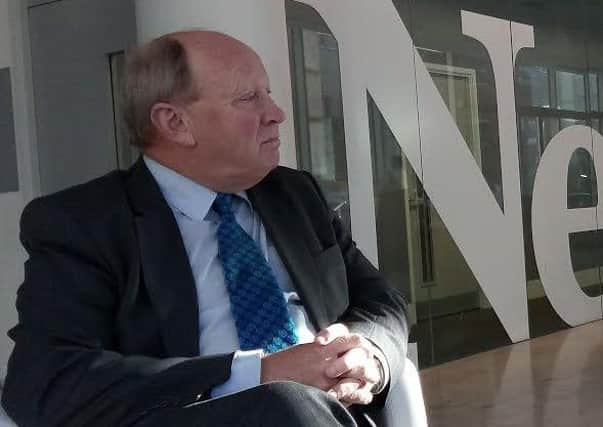Jim Allister says petition of concern is '˜abnormality'


Mr Allister said the petition was itself a contradiction of the normal democratic process, but insisted it was not the only “abnormality”.
“Let’s clear out all the abnormalities but if we can’t do that then why be selective,” he said.
Advertisement
Hide AdAdvertisement
Hide AdThe North Antrim candidate’s remarks come amid renewed debate on the fate of the petition.
The DUP, which has repeatedly used the mechanism to block changes to marriage laws and on a range of other issues, signalled last year that it would like to see it scrapped. Sinn Fein, which has also used the petition, has insisted it should be retained, but only used for its original purpose - protecting minorities.
If 30 MLAs sign a petition, a proposal can only pass if it is supported by a majority of both unionists and nationalists. Mr Allister said he would be willing to add his name to a petition in certain circumstances.
“I would like to see all the abnormalities rooted out of Stormont, including mandatory coalition, and when that went there would be no possible place for a petition of concern if you were moving to a regular system of government,” he said.
Advertisement
Hide AdAdvertisement
Hide Ad“But you can’t cherry pick the abnormalities. You can’t say we are going to get rid of this one but keep this one.
“If it still existed and it came down to me to decide whether or not same sex marriage is going to be introduced in Northern Ireland, though I have never to date signed a petition of concern, because generally I find them a distasteful mechanism. But if faced with that, if none of the other abnormalities has been removed I think I probably would sign that petition because I don’t want to see same sex marriage.”
Mr Allister said if a major reform of Stormont’s structures spelt the end of the petition and, as a consequence, changes to both marriage and abortion laws were ushered in, that would be something he would have to accept.
He said: “I would be very vexed and unhappy and would fight it tooth and nail and I would seek to use every device in the parliamentary process to thwart it, but if at the end of the day those whom the people had elected decided that this is what they wanted to do, much as I would detest it, it is something I would have to accept as the reality.”
Advertisement
Hide AdAdvertisement
Hide AdMr Allister said he remained steadfastly opposed to any relaxation of Northern Ireland’s strict abortion laws, including in cases where there has been a diagnosis of fatal foetal abnormality.
“Let’s say a child with anencephaly is born, its heart is beating, blood is pumping round its body, it’s not going to live very long - maybe an hour, maybe two hours, maybe two days. Is anyone going to step forward and say ‘let’s kill it’?
“If you are not prepared to kill it outside the womb, why should you kill it inside the womb?”
Reflecting on the triggering of the snap Assembly election, Mr Allister believes Brexit was more of a factor in Sinn Fein’s decision to pull the plug on Stormont, rather than the Renewable Heat Incentive (RHI) furore. He said republicans viewed the EU as way to harmonise the island of Ireland.
Advertisement
Hide AdAdvertisement
Hide Ad“Now that that has been called to a sudden halt and we are probably embarking on deharmonisation because we will go our own way, I think Sinn Fein has reckoned to themselves ‘do we want to be in a government which by necessity is going to no longer be harmonising across Ireland but perhaps having to deharmonise’.”
In regard to his opposition to an Irish language act, the former barrister said one of his main concerns was the potential use of Irish in court cases.
“There are 12 men and women in the jury and not one of them speak Irish, so every word has to be translated,” he said.
“He (the defendant) gives his evidence in Irish, it has to be translated. But in the translation you lose the entire nuance of what is being said. Very often, particularly in cross examination, it’s how a witness says something, it’s how they respond, as well as what they actually say, which gives the jury the picture and they see what sort of person they are dealing with, either sincere or otherwise.
“If you strip out all of that nuance, then justice suffers - never mind the cost.”